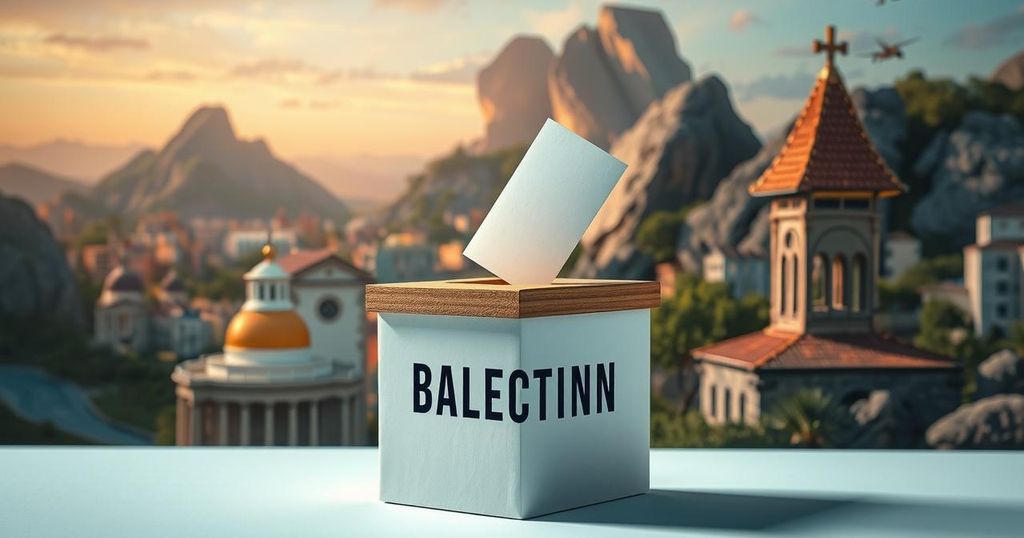Ecuador’s Run-Off Election Set for April: Noboa vs. González

Ecuador is headed for a run-off election on April 13, as incumbent President Daniel Noboa and former Assembly member Luisa González faced a statistical tie in recent elections. Noboa received 44.28% and González 43.86%, prompting the Electoral Council to arrange a debate ahead of the election. Key voter concerns include crime and poverty, with unprecedented political polarization observed in recent voting outcomes.
Ecuador is set to hold a run-off election on April 13, following a closely contested election last Sunday. Incumbent President Daniel Noboa secured 44.28% of the votes, narrowly defeating former National Assembly member Luisa González, who garnered 43.86%. The presence of 14 other candidates, who collectively received only 10% of the votes, highlights the increasing polarization of the electorate.
Due to none of the candidates achieving the required majority, the run-off will be a rematch of the October 2023 election, where Noboa won after the impeachment of former President Guillermo Lasso. Noboa, affiliated with the National Democratic Action party, has campaigned on a strong anti-crime agenda but faces criticism regarding his effectiveness in addressing rising crime rates even after initial military interventions in public security.
Conversely, González, from the Citizen Revolution Movement, aims to enhance military and police presence to combat crime, while also stressing the importance of increasing social spending to tackle underlying issues of poverty. The electorate remains especially concerned with violence stemming from organized crime, economic disparity, and energy shortages, with approximately 35% of the population living in poverty.
Highly unexpected was the close electoral result, which has garnered attention from political analysts. Fernando León, a professor at the Universidad Internacional de Ecuador, remarked that this level of political polarization represents an unprecedented trend in Ecuador, citing the declining quality of life related to security and access to essential services as contributing factors.
To facilitate engagement between the candidates, the National Electoral Council (CNE) has scheduled a mandatory presidential debate on March 23, prior to the run-off election. This event aims to provide voters with a platform to better understand the candidates’ positions and policies ahead of the crucial vote.
In summary, Ecuador’s upcoming run-off election signifies a notable political contention between President Daniel Noboa and challenger Luisa González, reflecting deep-seated electoral polarization. Both candidates offer contrasting approaches to pressing issues like crime and poverty, with critical implications for the future governance of Ecuador. The scheduled debate represents a significant opportunity for voters to engage with their potential leaders before the final decision.
Original Source: latinamericareports.com







